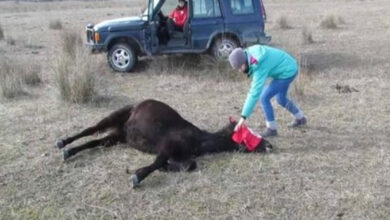Good and Bad Herbs for Dogs – Every Pet Owner Must Know It

Herbs are widely used today for several health benefits and as a complementary treatment for pets. Many herbal supplements are beneficial for pet health. But you should know that not all herbs and spices are good for your dog’s health. For any pet owner, it is important to know the good and bad herbs to treat your pet.
Most of us mistakenly believe that herbs are natural and therefore safe to use in the care of dogs. Unfortunately, they can have adverse effects and cause many health problems in pets. Some herbs are toxic and even deadly to some animals. We often use natural supplements to treat many illnesses in dogs, such as arthritis, immunity problems, stomach problems, bad breath, poor skin, and coat quality. So we use natural supplements to treat stomach aches and other ailments in dogs, which seems like a good way to save on unnecessary vet bills. But you can’t just give anything randomly or any health supplement without consulting a vet, as it’s important to choose the right dosage and ingredients. But once you have observed the benefits of supplements, you should look for the best ones that have worked well to improve your dog’s health. For any pet owner, it is important to know the good and bad herbs for dogs.
Good herbs for dogs
Dogs can eat cayenne pepper, dill, chia seeds, coriander, fennel, ginger, oregano, parsley, rosemary, thyme, turmeric, basil, mint, and cinnamon, but never give these herbs to your pet without consulting your veterinarian. Consultation ensures that none of these herbs or selected ingredients are harmful to your pet’s health. Consultation is also important to know the correct dosage for your pet’s symptoms. These herbs are healthy and add flavor to your dog’s diet while providing several health benefits. These herbs are anti-inflammatory, good for respiratory problems, and antioxidant. Other types of herbs and herbal supplements for dogs are available on the market and you can use them topically to improve your dog’s skin and coat.
Weeds for dogs
A big NO to comfrey which contains alkaloids that can cause cancer in dogs. It is important to avoid comfrey. Pennyroyal can be toxic, especially for animals with kidney problems and for pregnant bitches. Garlic is another controversial ingredient that is considered a weed for dogs. Only if your holistic vet recommends a very small amount can you adopt it. Onion and onion powder can upset your dog’s stomach and cause diarrhea and vomiting. Salt is also dangerous for dogs because it can cause increased urination and thirst, which can also lead to dehydration, vomiting, nausea, etc. Chocolate and cocoa are also dangerous for your dog’s nervous system. Conclusion: For a pet owner, maintaining the diet of his dog is very important to preserve his health. Herbal supplements for dogs are both good and bad, but you need to know which ingredients are good and which are toxic and have a major impact on your dog’s health. Research the benefits and several health problems of your pet often faced with the right and wrong choice of herbs. Be sure to gather the essential information about each herb and spice before choosing one for your dog





